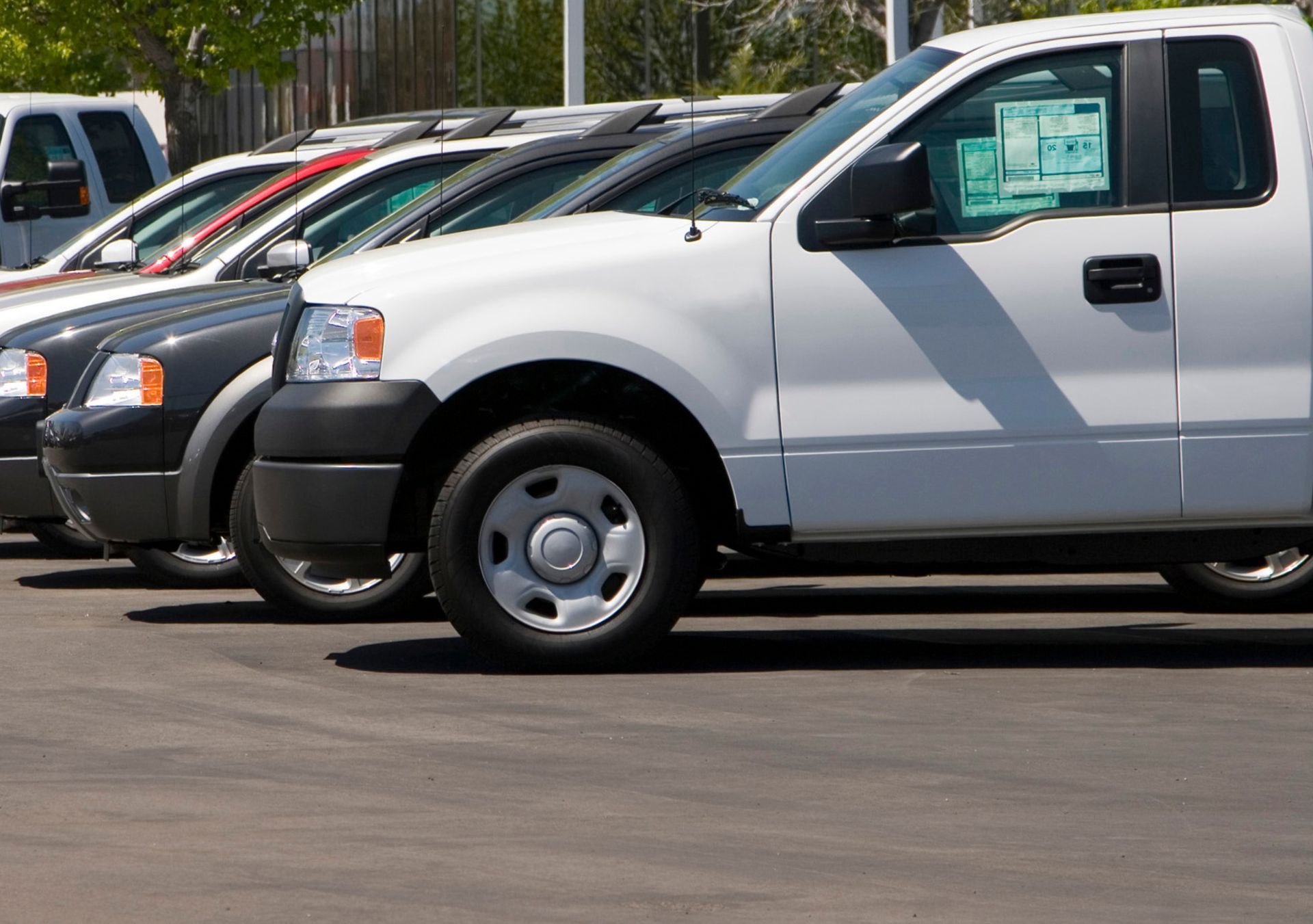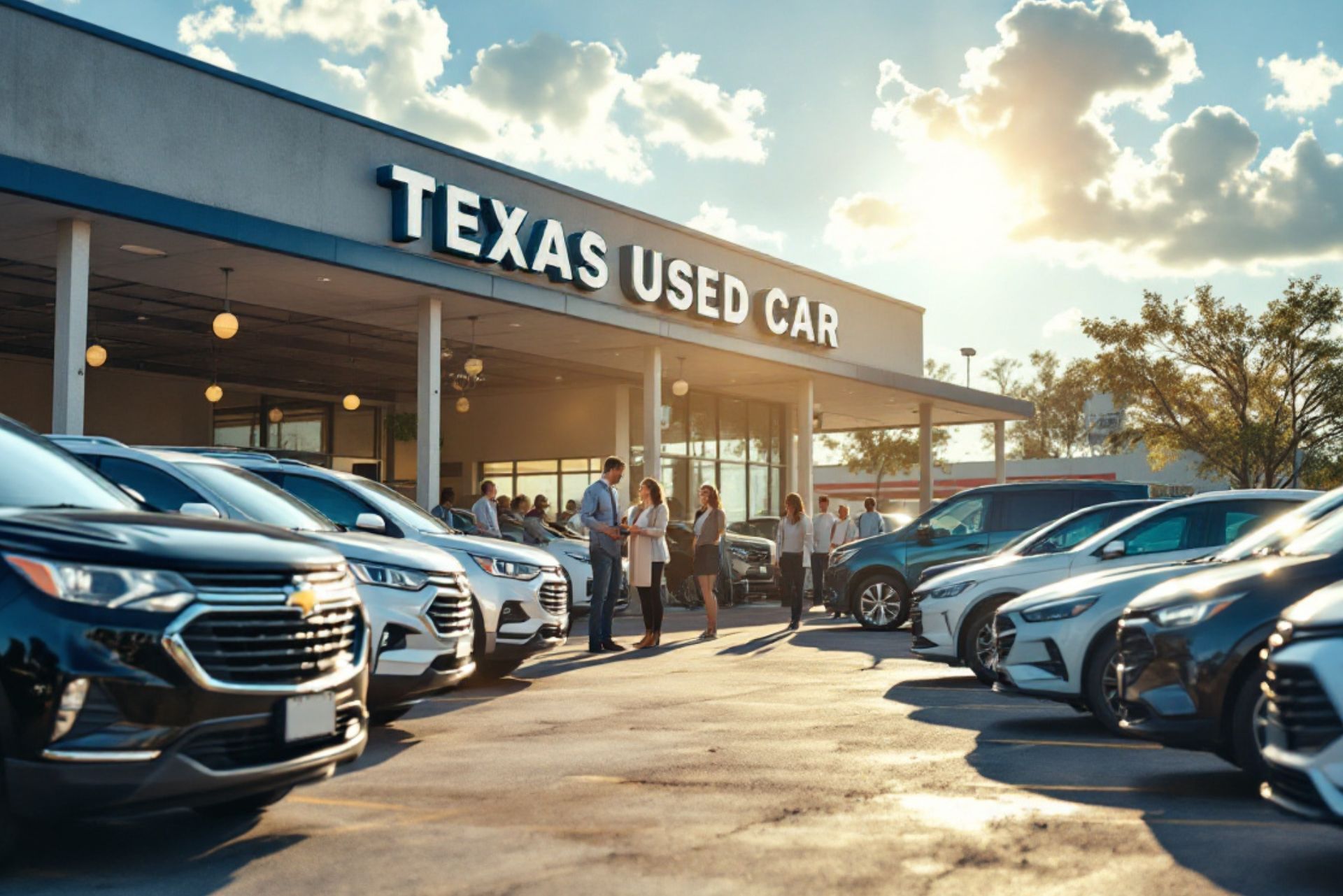Texas Used Car Dealerships Insurance

See How We're Different:
or Call Us: (214) 253-0570

Most Common Business Policies
Index
Understanding the Basics of Used Car Dealership Insurance
Navigating Texas Insurance Laws for Used Car Dealerships
Types of Insurance Coverage for Used Car Dealerships in Texas
How to Choose the Right Insurance Provider in Texas
Managing Risks and Reducing Insurance Costs
Frequently Asked Questions about Texas Used Car Dealerships Insurance
Contact Us
Owning and operating a used car dealership in Texas comes with its own set of challenges and considerations. One of the most critical elements that can significantly affect the success and sustainability of your dealership is the type of insurance you carry. This guide will dive deep into the various aspects of used car dealership insurance in Texas, aimed at helping you make informed decisions to protect your business.
Understanding the Basics of Used Car Dealership Insurance
Insurance for used car dealerships is designed to address the unique risks that these businesses face. Whether it's liability for accidents, damage to vehicles, or loss of inventory, having the right insurance coverage is essential. Understanding the fundamentals of dealership insurance can help you navigate these risks more effectively.
Importance of Insurance for Used Car Dealerships
For any business, insurance is not just a safety net; it is a vital component of its operational strategy. In the case of used car dealerships, the importance is magnified due to the high value of inventory and the inherent risks involved in selling motor vehicles. Having adequate coverage can protect dealership owners from costly lawsuits, accidents, and unforeseen events.
In Texas, where weather-related incidents can wreak havoc, insurance serves as a vital shield. From natural disasters like hailstorms to theft and vandalism, an insurance policy can minimize financial setbacks, enabling you to focus on your core operations. Additionally, the competitive landscape of the automotive market means that dealerships must be prepared for any eventuality, ensuring that they can recover quickly and maintain their reputation in the community.
Key Components of Used Car Dealership Insurance
The key components of used car dealership insurance generally include liability coverage, property coverage, and specialized coverages tailored for the auto industry. Liability insurance shields you from claims related to bodily injury or property damage arising from your dealership's operations.
Property coverage protects your dealership's physical assets, including the office space and inventory of vehicles. Additionally, specialized coverages like garage liability insurance and inventory protection are integral for a comprehensive insurance strategy. These specialized policies can cover specific risks associated with the automotive industry, such as test drive accidents or damage incurred while vehicles are being repaired. Understanding these nuances allows dealership owners to customize their insurance plans, ensuring that every potential risk is accounted for and mitigated effectively.
Moreover, many dealerships also consider adding coverage for business interruption. This type of insurance can provide financial support in the event that a disaster temporarily halts operations, covering lost income and ongoing expenses. Such foresight can be crucial, especially in a market where every sale counts and downtime can lead to significant revenue loss. By investing in a robust insurance policy that encompasses these various components, used car dealerships can not only protect their assets but also ensure business continuity in the face of adversity.

Texas has specific insurance laws and regulations that car dealerships must adhere to. Being aware of these laws not only ensures compliance but also protects your business from costly penalties.
Texas State Requirements for Used Car Dealerships
In Texas, all used car dealerships are required to carry certain forms of insurance. These typically include liability insurance and other forms of coverage necessary to protect both the business and its customers. The Texas Department of Motor Vehicles sets forth these requirements to ensure consumer protection and business accountability.
Additionally, some dealerships may also need to carry additional policies depending on their operational practices, such as employee insurance or specific coverage for financed vehicles. For instance, if a dealership offers financing options, it may be required to have a comprehensive insurance policy that covers the vehicles until they are fully paid off. This not only protects the dealership's assets but also reassures customers that their investment is secure.
Moreover, dealerships should consider obtaining garage liability insurance, which provides coverage for bodily injury and property damage that may occur on the dealership premises. This is particularly important given the high volume of customer traffic and the potential for accidents or injuries that could arise during test drives or while customers are inspecting vehicles.
Penalties for Non-Compliance with Texas Insurance Laws
Failing to comply with Texas insurance regulations can result in severe penalties, including fines or, in extreme cases, loss of your dealership license. Non-compliance can also expose the dealership to significant financial liabilities in the event of an accident or lawsuit.
To avoid these pitfalls, it is crucial to stay updated on the latest laws and regulations, ensuring that your insurance coverage meets all state requirements. Regular training sessions for staff on compliance and risk management can also be beneficial. By fostering a culture of awareness and responsibility, dealerships can mitigate risks and create a safer environment for both employees and customers.
Furthermore, engaging with a knowledgeable
insurance agent who specializes in automotive dealerships can provide valuable insights into the best coverage options tailored to your specific business needs. Such professionals can help navigate the complexities of Texas insurance laws, ensuring that your dealership is not only compliant but also well-protected against unforeseen circumstances.
Types of Insurance Coverage for Used Car Dealerships in Texas
Having a variety of insurance coverages provides a safety net for a used car dealership. Depending on your business's specific needs, you can opt for several types of coverage to create a robust insurance plan.
Garage Liability Insurance
Garage liability insurance is specifically designed for automotive businesses, protecting against third-party bodily injury and property damage claims that arise from dealership operations. This coverage is essential for those who test-drive vehicles or have customers on-site.
Whether a customer injures themselves while test-driving a car or a vehicle accidentally causes damage to property, garage liability insurance ensures that you are financially protected in these scenarios. Additionally, this coverage can extend to incidents that occur on the dealership premises, such as a customer slipping and falling in the parking lot or an employee accidentally damaging a customer's vehicle while performing maintenance. Such incidents can lead to costly lawsuits, making this insurance a critical component of your overall risk management strategy.
Dealers Open Lot Insurance
Dealers open lot insurance covers vehicles that are owned by the dealership and stored on the premises. This coverage is crucial because it protects your inventory against risks such as vandalism, theft, or natural disasters.
Given the potentially high value of the vehicles on your lot, this insurance type can be a lifesaver, especially in regions prone to severe weather events. For instance, in Texas, where hailstorms can be frequent and damaging, having this coverage can help mitigate the financial impact of losing several vehicles at once. Moreover, some policies may also offer coverage for vehicles in transit, ensuring that your assets are protected even when they are being transported to or from your dealership, thus providing comprehensive peace of mind.
False Pretense Coverage
False pretense coverage protects dealerships from losses due to deceptive practices, such as when a vehicle is sold on a fraudulent basis. This insurance is essential for protecting against the risk of buyer deception, ensuring that your dealership does not suffer substantial financial losses due to others' dishonesty.
Such coverage is not as commonly understood, yet it can be invaluable in a sector where transactions often involve large sums of money. In addition to safeguarding against fraudulent purchases, this coverage can also help in situations where a customer provides false information to secure financing or misrepresents their identity. By having this protection in place, dealerships can navigate the complexities of sales transactions with greater confidence, knowing they have a safety net against potential financial pitfalls that could arise from dishonest dealings.
How to Choose the Right Insurance Provider in Texas
Selecting the right insurance provider is crucial for ensuring that you receive comprehensive coverage suited to your specific business needs. There are several factors to consider when making this important decision.
Factors to Consider When Choosing an Insurance Provider
When evaluating insurance providers, consider their experience with automotive dealerships, the range of coverage options they offer, and their reputation in the industry. It's beneficial to choose a provider that specializes in dealership insurance to receive tailored coverage that addresses common risks faced by auto businesses. A provider with a strong understanding of the automotive sector will be more adept at anticipating the unique challenges you might face, from inventory losses to liability claims.
Customer service is another essential factor; having a responsive agent can make a significant difference when filing claims or needing assistance with your policy. A dedicated agent who understands your business can provide invaluable advice and support, particularly during critical moments. Additionally, consider the provider's claims process; a streamlined, efficient claims process can alleviate stress and ensure you get back to business as quickly as possible. Finally, consider pricing and deductibles to ensure that you are getting value for your investment. Look for discounts or bundling options that might be available to further optimize your coverage while managing costs.
Understanding Insurance Quotes and Premiums
Understanding the differences between insurance quotes and premiums is crucial. A quote provides an estimated cost based on the information you provide, while the premium is the actual amount you will pay for your coverage. Different coverages and limits will affect these figures, so it’s important to compare quotes carefully. Be sure to provide accurate and comprehensive information to each insurer to receive the most accurate quotes possible, as even minor discrepancies can lead to significant differences in pricing.
Always read the fine print and understand the exclusions and limitations in each policy to avoid surprises down the road. Some policies may have specific conditions that could impact your coverage, such as geographical limitations or particular types of incidents that are not covered. Comparing multiple quotes can not only save you money but also ensure you receive adequate coverage for your needs. It may also be beneficial to consult with an insurance broker who can provide insights into the nuances of various policies and help you navigate the complexities of the insurance landscape, ensuring you make an informed choice that aligns with your business objectives.

Managing Risks and Reducing Insurance Costs
Managing risks effectively can significantly reduce your insurance costs. By implementing a proactive risk management strategy, you can create a safer environment for your business and potentially lower your premiums.
Implementing Risk Management Strategies
Risk management strategies can include regular training for employees, maintaining a clean and organized lot, and implementing strict vehicle maintenance protocols. Reducing the number of accidents and claims will positively impact your insurance premiums over time.
Additionally, having a comprehensive security system can deter theft and vandalism, thereby providing further protection for your business and reducing risks associated with inventory loss. Investing in surveillance cameras, alarm systems, and access control measures not only enhances security but also serves as a strong signal to insurance companies that you are committed to minimizing risks. This proactive approach can lead to further discounts on your premiums, as insurers often reward businesses that take significant steps to protect their assets.
Moreover, fostering a culture of safety within your organization can have long-lasting benefits. Encouraging employees to report potential hazards and near-misses can help identify areas for improvement, ultimately leading to a safer workplace. Regular safety audits and drills can also reinforce the importance of risk management and ensure that everyone is prepared to respond effectively in case of an emergency.
Tips for Reducing Insurance Premiums
To help lower your insurance premiums, consider increasing your deductibles or bundling insurance policies. Often, insurance providers will offer discounted rates for multiple policies, which can save you significant amounts of money.
Regularly reviewing your coverage and comparing quotes from different insurers can also lead to better pricing as your business evolves. It’s important to keep your insurance needs aligned with the scope and growth of your dealership. Additionally, maintaining a good credit score can positively influence your insurance rates, as many insurers consider credit history when determining premiums. By managing your financial health and ensuring timely payments, you can position your business favorably in the eyes of insurance providers.
Another effective strategy is to engage in loss prevention measures. This could involve conducting thorough background checks on employees, implementing a driver safety program, or even investing in technology that monitors vehicle usage and driver behavior. By demonstrating to insurers that you are actively working to mitigate risks, you can often negotiate better terms and lower premiums. Keeping detailed records of your risk management efforts can also serve as valuable documentation during discussions with your insurer, showcasing your commitment to maintaining a safe and secure business environment.
Frequently Asked Questions about Texas Used Car Dealerships Insurance
As you explore insurance options for your used car dealership in Texas, you likely have questions. Here are some common inquiries that many dealers have regarding their insurance needs.
What Does Used Car Dealership Insurance Cover?
Used car dealership insurance typically covers a range of risks including liability for accidents, property damage, and theft. It may also include specialized coverages such as garage liability and dealers open lot insurance to protect your business effectively.
Each insurance policy can be customized to address the specific needs and risks associated with your dealership operations, offering you the flexibility to choose what best suits your situation. Additionally, many policies offer coverage for employee-related risks, such as workers' compensation, which is crucial for protecting your staff while they are on the job. This aspect of insurance is particularly important in a dealership environment where employees may be exposed to various hazards, from handling vehicles to managing customer interactions.
How Much Does Used Car Dealership Insurance Cost in Texas?
The cost of used car dealership insurance can vary widely based on several factors, including the size of your dealership, the value of your inventory, and your claims history. Generally, you can expect to pay anywhere from a few hundred to several thousand dollars annually.
It’s best to gather quotes from multiple providers and evaluate the coverage options they offer to determine the best balance of cost and protection for your dealership. Moreover, many insurance companies provide discounts for dealerships that implement risk management practices, such as employee training programs and security measures like surveillance systems. By investing in these proactive strategies, you may not only enhance the safety of your operations but also potentially lower your insurance premiums over time.
In conclusion, having the right insurance in place is not just a regulatory requirement but a strategic component of running a successful used car dealership in Texas. By understanding the basics, navigating the legal landscape, and actively managing risks, you can position your dealership for long-term success.

